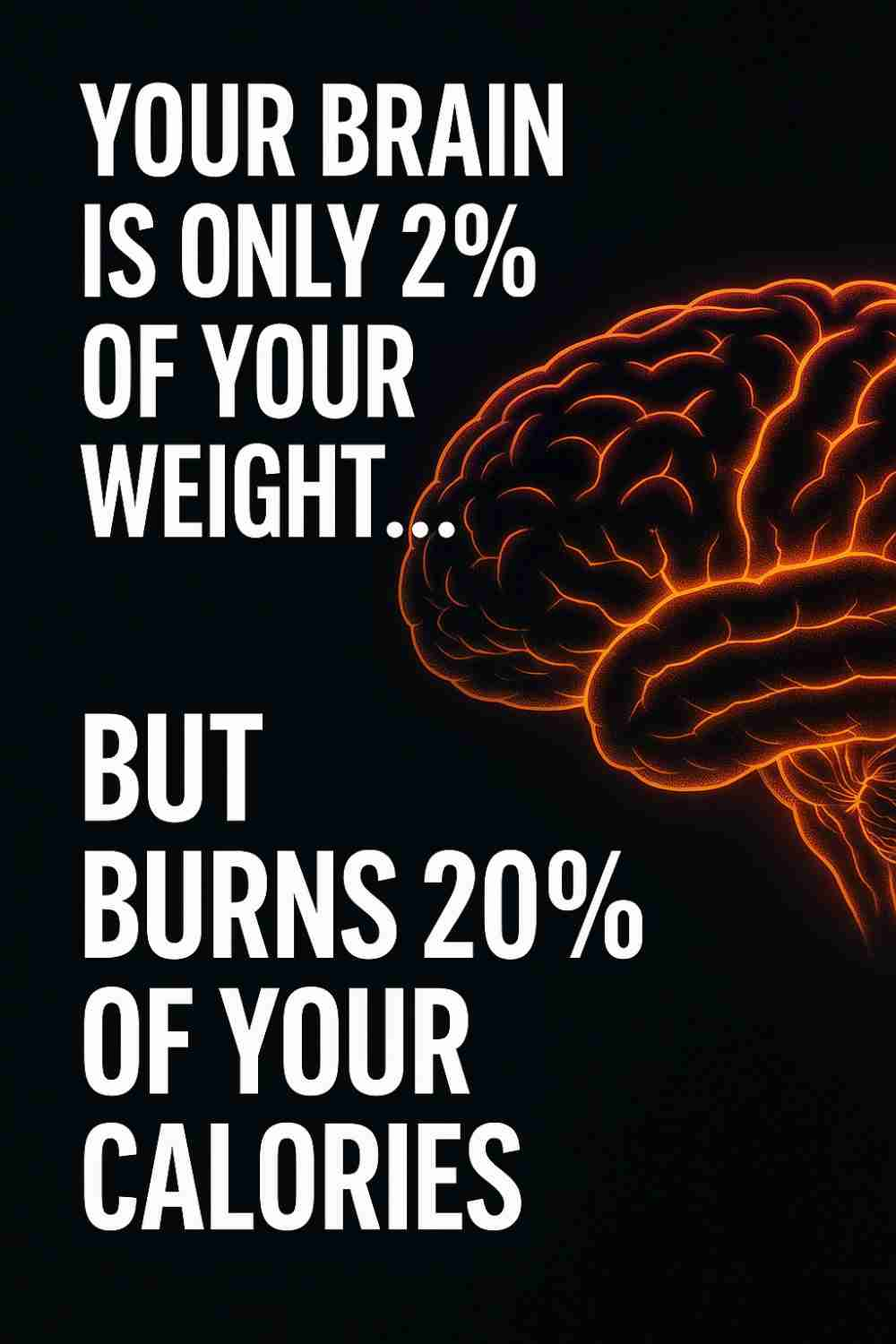 Ever stop to think about how much energy it takes just to think? Your brain, that three-pound lump of wrinkled jelly inside your skull, is a straight-up energy hog. While it only makes up about 2% of your body weight, it guzzles a staggering 20% of your daily calories. That’s right—your thoughts burn more fuel than your legs on a jog.
Ever stop to think about how much energy it takes just to think? Your brain, that three-pound lump of wrinkled jelly inside your skull, is a straight-up energy hog. While it only makes up about 2% of your body weight, it guzzles a staggering 20% of your daily calories. That’s right—your thoughts burn more fuel than your legs on a jog.
The Brain’s Insatiable Appetite
Let’s put this in perspective. If your body were a household budget, your brain would be that one roommate who somehow eats half the groceries but never does the dishes. It doesn’t move, lift, or flex, yet it demands a constant supply of glucose like a CEO demanding espresso shots at 3 AM.
Why? Because neurons are high-maintenance. They’re always firing, always chatting, always processing—even when you’re binge-watching trash TV. Your brain doesn’t clock out. Ever.
What’s All That Energy Actually Doing?
Good question. It’s not like you’re solving quantum physics equations in your sleep (unless you are, in which case, congrats—you’re a genius). Most of that energy goes toward keeping the lights on:
🔥 Basic housekeeping – Synapses firing, cells repairing, chemical signals zipping around like overcaffeinated interns.
🔥 Memory storage – Every dumb meme, every awkward childhood moment, your ex’s birthday (ugh)—your brain files it all away.
🔥 Sensory processing – Turning light into vision, vibrations into sound, that weird smell in your fridge into a reason to panic.
And here’s the kicker: the harder you think, the more fuel you burn. Ever felt hungry after a long study session or a brutal work meeting? That’s not your imagination. Your brain just ran a marathon.
The Myth of the “10% Brain” Lie
You’ve heard the old myth—”humans only use 10% of their brains.” Absolute nonsense. If that were true, evolution would’ve ditched the other 90% faster than a bad Tinder date. Every part of your brain has a job, even if some areas are just lurking in the background like underpaid security guards.
The truth? You’re using all of it—just not all at once. Different tasks light up different regions, but the whole system is always humming along, burning through energy like a sports car idling in traffic.
Why Brains Are Such Energy Hogs
Blame evolution. Early humans didn’t need massive biceps—they needed smarts. Outthinking predators, remembering where food was, inventing fire (and then probably burning dinner anyway). Over time, brains got bigger, and so did their appetites.
But here’s the irony: modern life is easier than surviving in the wild, yet our brains still act like they’re running from saber-toothed tigers. Stress, multitasking, doomscrolling—your brain treats all of it like an emergency. No wonder we’re exhausted.
Can You “Fuel” Your Brain Better?
Technically, yes. But no, chugging kale smoothies won’t turn you into Einstein. Still, a few things help:
🍎 Eat real food – Your brain loves omega-3s, antioxidants, and steady glucose (not the sugar crash from your third donut).
💤 Sleep more – During sleep, your brain does its version of taking out the trash. Skip it, and you’re basically running on mental sludge.
🧠 Challenge it – Learn something new. Puzzles, languages, even weird hobbies—your brain thrives on novelty.
But let’s be real: sometimes, the best thing you can do for your brain is stop thinking so hard. Take a walk. Stare at a wall. Let it breathe.
The Bottom Line
Your brain is a miracle of efficiency—and also kind of a diva. It demands fuel, throws tantrums when tired, and never shuts up. But hey, that’s the price of being human. So next time you’re mentally drained, cut yourself some slack. Your brain just burned through a stupid amount of energy—and all you did was read this article.

